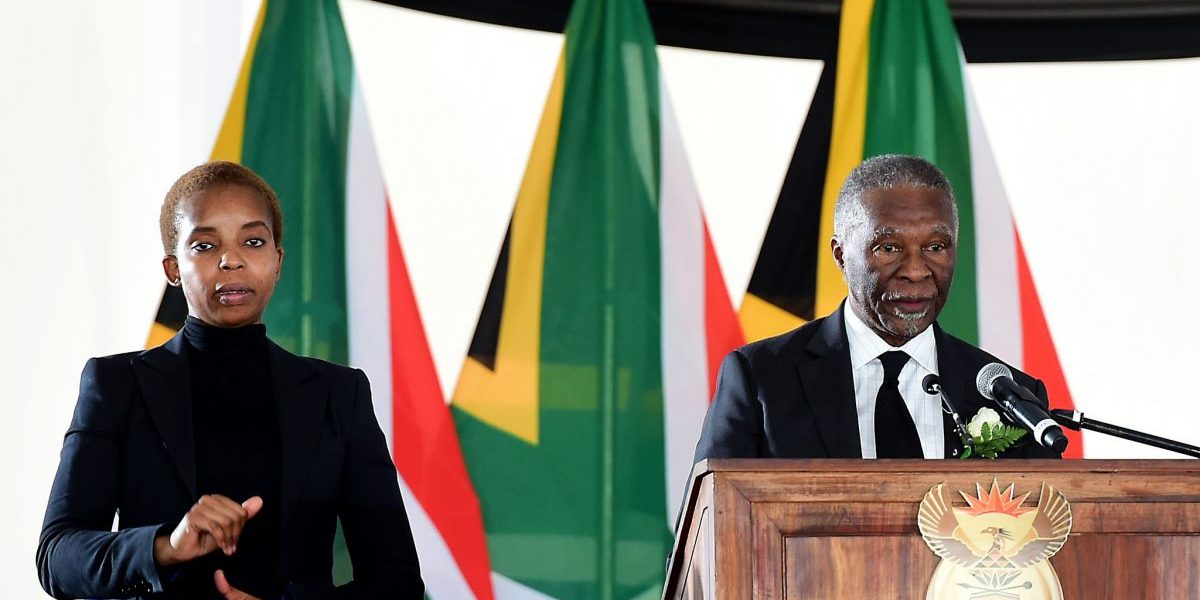In the Friendship Hall which overlooks the Blue Nile, the hot issue of the relationship between South and North Sudan came under the spotlight at the official launch of the post-referendum talks between the National Congress Party (NCP) and the Sudan People’s Liberation Movement (SPLM). Former South African president Thabo Mbeki, acting in his capacity as Chair of the African Union High Implementation Panel (AUHIP), paved the way for the talks by presenting four possible scenarios of the form post-referendum relations between North and South Sudan can take.
President Mbeki’s intervention at the launch of the talks may provide some initial signals of the proverbial ‘shape of things to come’ in Sudan. One of the most interesting and also important elements of the speech he gave at the event is the fact that the talks between the NCP and SPLM are based on the need to fundamentally restructure the Sudanese state. After two lengthy civil wars that affected generations of Sudanese, and caused unknown damage to both the socio-cultural and political-economic system in Southern Sudan, it is clear that a restructured Sudanese state as well as renegotiated relationship between North and South Sudan is the only way in which peace can be maintained in the long term.
The scenarios presented by President Mbeki are not parts of a blueprint for the outcome of the negotiations, but were presented as basic thoughts on the potential outcome of the process. The first scenario speaks to a pure separatist option which may lead to the complete separation into two independent countries/states; The second scenario looks at the creation of two independent states, but, there will be ‘soft borders’ in addition to a well defined framework for cooperation between North & South Sudan; The third scenario looks into the possibility of the existence of two independent states with shared institutions and may take the form of a confederal system of governance; The fourth scenario foresees a unified Sudan with a newly negotiated structural relationship between North & South.
In several interviews I conducted in both Khartoum and Juba the message came through clearly that public opinion in Southern Sudan goes overwhelmingly towards independence from Northern Sudan. Yet, in as much as there is a strong push for independence, Juba’s future as well as that of Khartoum, depends on finding solutions to the shared lifeblood of oil pumped from Southern territories and shipped out via Port Sudan on the Red Sea. This implies that popular opinion calling for independence may come up against the hard political reality of the South being completely reliant on oil exports as economic commodity. Reliance on a single resource, and the fact that income sharing forthcoming from its export will depend on Khartoum and Juba maintaining, at minimum, a business relationship, therefore puts tremendous pressure on the negotiation teams working on ironing out South-North relations in the next six months.
When turning one’s attention to the referendum, scheduled to take place on 9 January 2011, there will be several hurdles still to cross.
Firstly, the logistics and finances needed to conduct the referendum needs urgent attention. Following hard on its heels is the fact that a sixty percent turnout is needed for the referendum to be recognised. In this regard some concerned voices in Juba are saying that if it so happens that the referendum results, or turn-out at the polls, do not meet the legal requirements, then hard-line elements in the South may choose to go for a unilateral declaration of independence. Although this may be the very last option considered in Juba, the fact remains that the memory of war with Khartoum is still very close to the surface, and anger at the historical injustices people of Southern Sudan had to endure for decades on end may yet bring surprising new developments to the surface in what is not only Africa’s largest country, but arguably one of its most complex political environments.
One can only wish Thabo Mbeki all the best as he shuttles between Khartoum and Juba to weave a tapestry of talks that can bring a new Sudan into being to maintain peace and usher Sudan into a future devoid of conflict.








